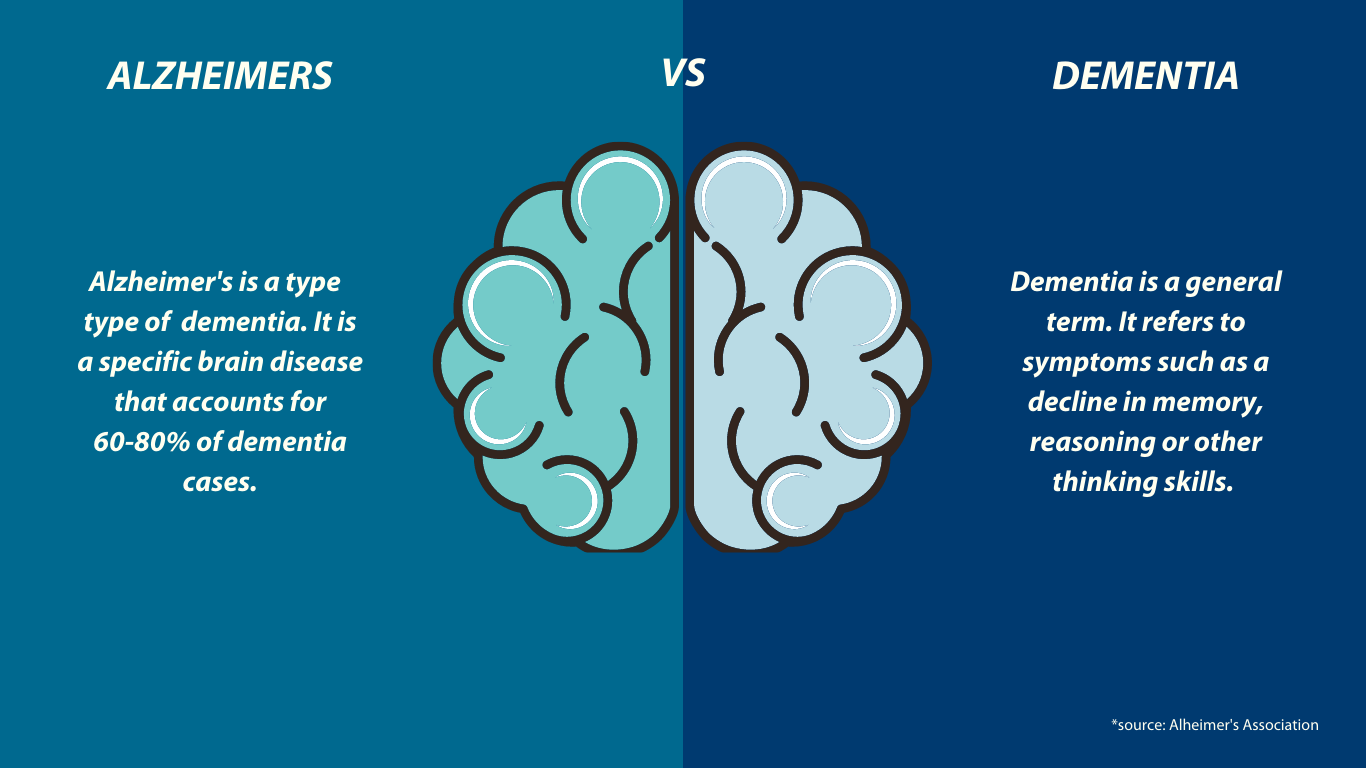
Alzheimer's Disease FAQ
Alzheimer’s disease is a progressive, degenerative brain disorder that is characterized by memory loss, cognitive decline, and behavioral changes. Symptoms worsen over time, usually over several years, and can have a severe effect on performing daily tasks and activities.
Alzheimer’s is considered a terminal condition, with an average life expectancy of 4 to 8 years after diagnosis, though some people live up to 20 years, depending on the specific circumstances and their quality of care. It is the sixth leading cause of death in the United States for seniors over 65. A 2024 study showed that about 6.7 million Americans over the age of 65 are living with Alzheimer’s disease and this number continues to rise. Early Onset Alzheimer’s, affects approximately 200,000 Americans under the age of 65 (typically between the ages of 30 and 60), according to the Alzheimer’s Association.
If you have a loved one who has recently been diagnosed, you likely have many questions. This FAQ gives you answers from care professionals at Visiting Angels®. Learn more about Alzheimer’s below.
What is the difference between dementia and Alzheimer's?
What are the risk factors for Alzheimer's?
What are common symptoms of Alzheimer's?
How does the disease progress?
Does Alzheimer's disease have a cure?
What are the options for Alzheimer's in-home care?
What is the Difference Between Dementia and Alzheimer's?
Dementia is an umbrella term for a wide range of brain disorders that are characterized by memory loss. Alzheimer’s is the most common type of dementia. According to estimates, Alzheimer’s cases account for somewhere between 60% to 80% of all cases of dementia.
It’s therefore true that everyone with Alzheimer’s has dementia, but not everyone with dementia has Alzheimer’s. Individuals who are living with vascular dementia, for instance, will suffer symptoms similar to Alzheimer’s, but the cause of their dementia is different.
What are the risk factors for Alzheimer’s?
While scientists are still researching the exact cause of Alzheimer’s disease, researchers have identified a number of risk factors.
The three biggest risk factors are as follows:
- Advanced Age. In the vast majority of cases, symptoms of Alzheimer’s disease begin after the age of 65.
- Genetics. Individuals with a family history of Alzheimer’s are at higher risk of developing the disease themselves.
- Heart Health. Poor cardiovascular health increases one’s risk. Individuals with a history of hypertension, high cholesterol, diabetes, stroke, or cardiac arrest will be at higher risk.
What are common symptoms of Alzheimer’s?
There are indications that a loved one may be experiencing early signs of the disease. Most symptoms, particularly early signs of Alzheimer’s, are expressed through a person’s speech, thought patterns, and behaviors. The most prominent symptoms include:
- Short-term and long-term memory loss
- Trouble solving simple problems
- Uncommon struggles with day-to-day activities
- Words forgotten or mixed up
- Items lost more frequently
- Confusion about current time or place
- Confusion about the names and identities of people
- Irrational, irritable, or depressed behaviors and actions
How does the disease progress?
Researchers believe the disease begins many years before people begin to show any indications. Symptoms typically start to appear in older adults, though some cases of Alzheimer’s begin in a person’s 40’s or 50’s. It is a gradual, progressive disease, with symptoms becoming worse over a period of years. At first, symptoms will be mild and will have minimal impact on the person’s well-being, but as the disease progresses, symptoms can develop from moderate to severe. By the final stages, the person may lose all short-term and long-term memory, the ability to speak and to understand speech, and the ability to perform basic personal activities, such as how to use the bathroom or eat on their own. Learn how to prepare for the progression of Alzheimer’s here.
Does Alzheimer’s disease have a cure?
Currently, there is no known cure for Alzheimer’s disease, and the disease’s progress is believed to be irreversible. While scientists continue to search for a cure, modern treatments and clinical trials are limited to slowing the onset of the disease, delaying its initial symptoms, or reducing its progress. Doctors recommend that individuals at risk or living with Alzheimer’s disease focus on healthy lifestyle choices, particularly focusing on cardiovascular health. Interventions such as improved sleep habits, increased omega-3 intake, and decreased stress are also proven to reduce the risk.
What are the options for Alzheimer’s in-home care?
Alzheimer’s home care is distinct from traditional home care since individuals with Alzheimer’s have distinct care needs from other seniors, but home care is still an option. At Visiting Angels West Metro, our specialized care is designed around the unique challenges of the disease, as well as the recipient’s individual care needs. All of our caregivers receive specialized, on-going training in Alzheimer's care and are equipped to assist clients with their specific care needs. Our nurses provide hands on training based on current resources and data from the Alzheimer's Association including specific types of Alzheimer's such as Lewy body, vascular dementia and early onset. They learn the skills necessary to assist clients who are living with the disease and the unique challenges that they can face such as sleeplessness, anxiety and agitation.
Contact Visiting Angels West Metro office to request a free consultation and learn more about how we can help your loved one. Our office serves seniors and aging adults throughout the Minneapolis west and southwest metro area including the cities of Wayzata, Minnetonka, Maple Grove, Excelsior, Delano and many other surrounding communities.
Serving Minneapolis and the West and Southwest Communities
Visiting Angels WAYZATA, MN
901 Twelve Oaks Center Drive #908CWayzata, MN 55391
Phone: 952-935-0789
